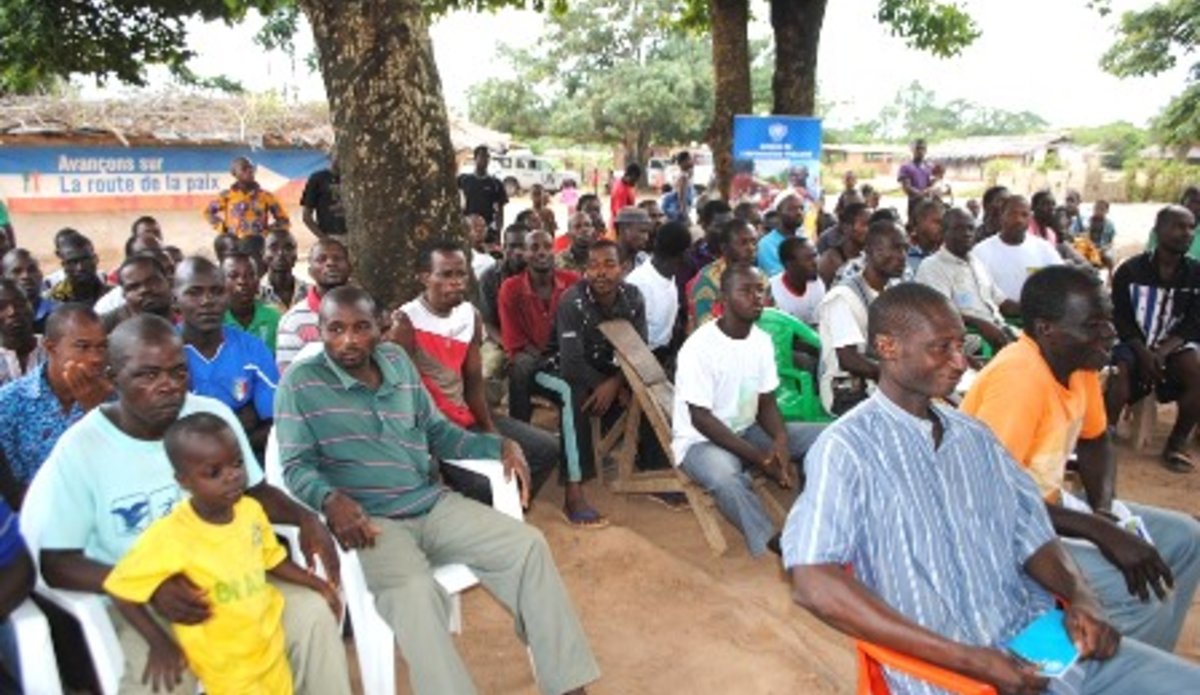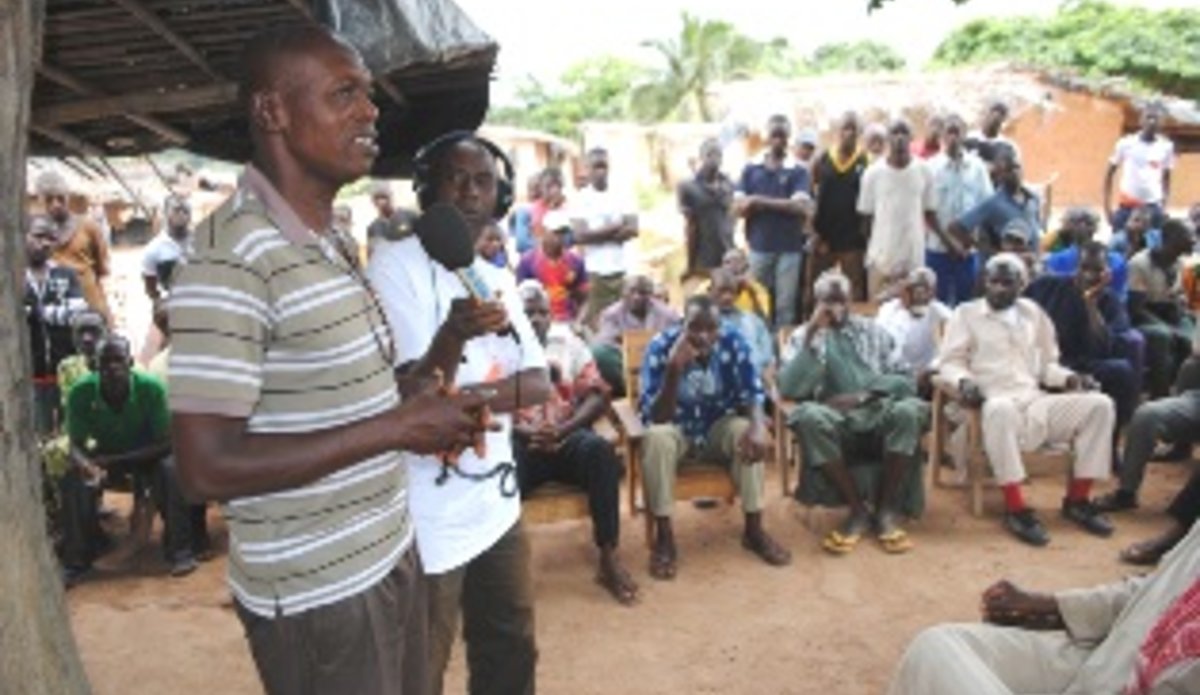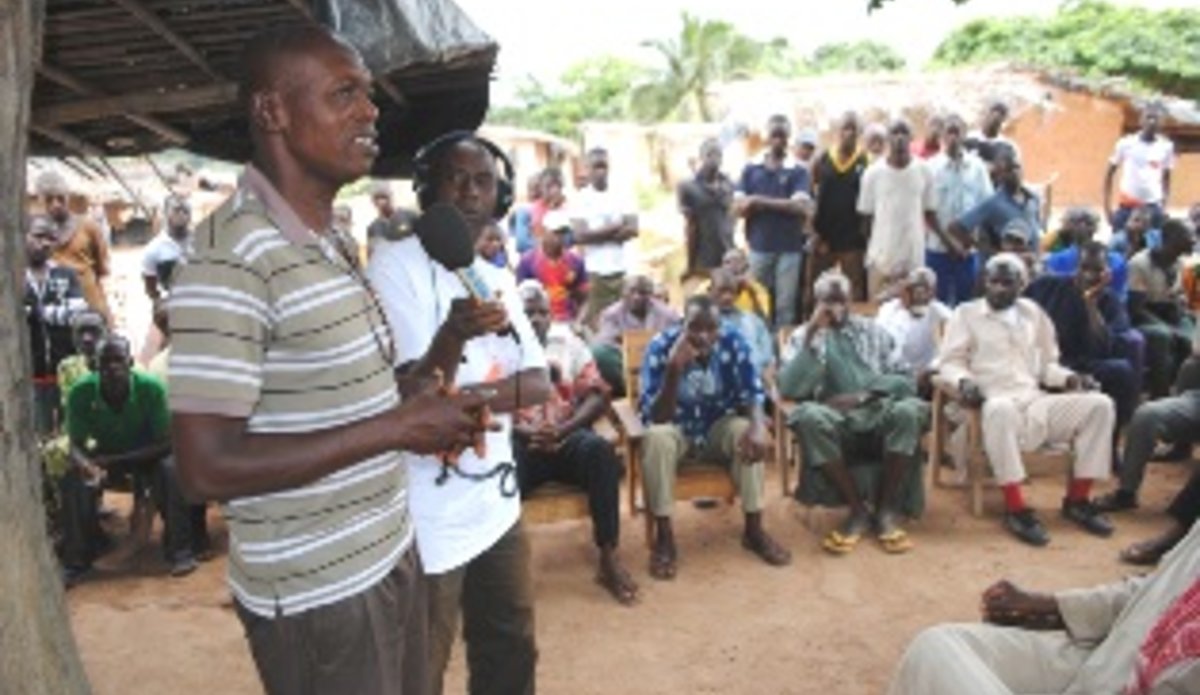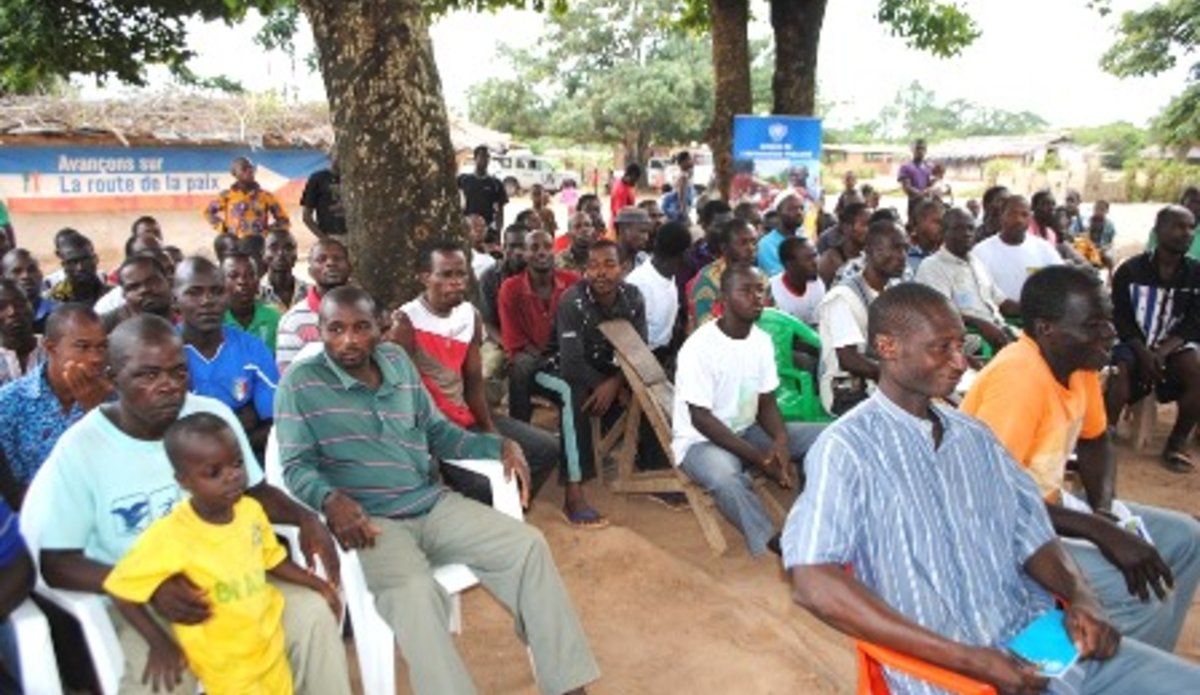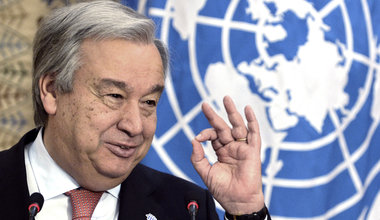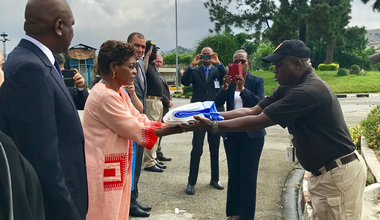Population of Tehebly sensitized on social cohesion and human rights

A meeting to sensitise the population of Tehebly, 504 km north-west of Abidjan on social cohesion and human rights was organized on 26 June 2014 by the UN Operation in Cote d'Ivoire (UNOCI) in collaboration with the NGO .
UNOCI representative, Pierre Aby of the Public Information Office spoke of the rights of the child, stressing that proper upbringing by parents was essential for the growth and future wellbeing of children. "The place of the child is in school and not the plantations. They should first learn to read and write and tomorrow they may become big agriculturists if they have a liking for farming or any other area of prominence," he pointed out.
Representatives of UNOCI Force and UN Police spoke of their role to protect persons and goods with the support of the local forces, the establishment of peace and the carrying out of humanitarian activities such as providing free medical consultations and treatment to the needy.

representative, Jonas Siekpo called on the people to respect native laws and customs as a guarantee for social cohesion. He advised them not to spread rumours. "Rumor mongering spoils the atmosphere of a community and jeopardizes cohesion. I ask you to put a stop to it," he said.
The Chief of Service of Lands and Surveys at the regional department of Agriculture, Teya Koffi said land was sacred and can be the source of disagreement. It is therefore important, he said, for land disputes to be handled with care and mastery. He called on the people to apply the 1998 law on rural lands which gives them the opportunity to establish land certificates of ownership.

The Chief of Tehebly, Francois Koffi Dongo said he was satisfied with the meeting and said he was motivated by the discussions to strengthen social cohesion in his area. He seized the opportunity to express grievances to the government including the need for potable water, the rehabilitation of the primary school and health centre as well as two bridges in the village.
 UN
UN United Nations Peacekeeping
United Nations Peacekeeping
